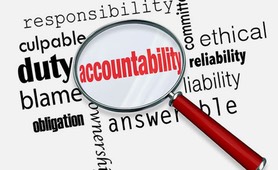
Interview with Upper Columbia Conference Church Member
June 29, 2016
Fulcrum7 spoke with Alyce Ispirescu about the Upper Columbia Conference's recent executive committee decision to change their commissioned minister description so women could essentially do all the functions of an ordained pastor. There is a rapidly growing grassroots movement to call a conference-wide constituency meeting to address this change--a change that is out of harmony with the world-wide Adventist Church.
Hi Alyce, thanks for giving us this interview.
You’re welcome.
It sounds like the UCC excom committee is redefining your conference minister policy.
The UCC is changing the commissioned minister policy to make it essentially identical to the ordained minister policy. The procedures, processes and responsibilities for commissioned and ordained ministers are now the same. It is simply a matter of semantics to maintain and utilize both terms.
Did they consult the laity in your conference before voting such a change?
To my knowledge, the UCC did not consult the laity before having the executive committee, comprised of 21 members, vote on this pivotal issue.
Was the lay advisory committee consulted?
The Lay Advisory Council is a committee comprised of lay persons from each church in our Conference intended to act as the liaison between the churches and the Conference. It is to study problems and make recommendations to the Conference, as well as report back to their respective churches that which has been decided by the Conference. This committee was not consulted in this matter.
Why do you think the conference president let something like this pass without consulting the constituents?

The merger of commissioned and ordained minister processes, procedures and responsibilities can become a very controversial topic if discussed with the constituency, and I believe UCC President Hoover was trying to avoid this discussion by having the executive committee decide on this issue for the entire conference. However, because of the way that this decision was handled, many of our people have lost faith and confidence in the UCC.
Is this action in compliance with the Seventh-day Adventist Church Manual?
I do not believe this action is in compliance with the church manual.
Is this policy change a reaction to the WO vote in San Antonio last July?
This policy change goes directly against the WO vote in San Antonio last July. The UCC is taking the issue in its own hands after the General Conference in session has made a decision and disallowed individual conferences to take up the issue again.
Have constituents tried talking with the conference leadership to voice their opposition to this change?
There is a growing grassroots movement underway who are voicing their opinions on this change to the UCC. This grassroots lay-led movement is also letting individual churches know that they can do something about it.
I have seen pro-WO conference leaders take the attitude that they know better than their constituents, and are thus not accountable to them. Do you sense that kind of spirit here?
Yes. It feels like this is a case of the conference leaders taking the attitude that they know better than the constituents, and thus there’s no need for them to ask for permission when it’s easier to ask for forgiveness. I can't imagine how someone can be a good leader and not have self-accountability as a parallel trait.
Is rebellion too strong a word for what is happening here?
This action demonstrates rebellion against the World Church, as well as against the local churches to which the UCC is accountable.
If the conference leaders demonstrate defiance towards the world church decision, what prevents local churches from eventually demonstrating defiance towards the conference? Rebellion seems to beget rebellion in families, and even in church families.

This defiance of the UCC towards the World Church decision could incite local churches to be defiant against their own Conferences, Union, Division, and ultimately against the General Conference. This action sends a wave of disorder through God’s church, as our congregations look to the conference to set the example of faithfulness toward the broader policies of the church.
What can the constituents do to rebuff such top-down abuses of authority?
The Constitution and Bylaws of the UCC provides for checks and balances by allowing the constituent churches to petition for a special session to discuss this and/or any issue that is of importance to them. Local churches can and should voice their concern about this issue through the mechanism provided in the Constitution and Bylaws. Leadership should welcome this--being accountable is a natural interwoven aspect of being a successful leader.
How many churches are needed to call for a state-wide constituency meeting to address the issue?
According to the Consitution and Bylaws of the UCC Article 7, Section 3, C, fifteen percent of the constituent church boards are needed to petition for a conference-wide constituency meeting to address the issue. Fifteen percent translates to 19 churches in the UCC.
What kind of feedback are you hearing from other UCC constituents?
What I am hearing from lay people in our conference is first, frustration because they were not aware our conference has passed such a vote, and then discontentment with the actual decision of the executive committee.
What can members do to help expose this divisive action?
Members can share with others in our conference the fact that this vote was passed on March 29, 2016. Constituents can also bring it before their local church board to petition the UCC to a special session by the end of 2016 to discuss and rescind this vote by the executive committee. A number of church boards have already voted for a conference-wide constituency meeting, and more are coming. God bless!